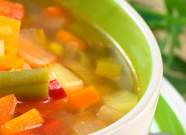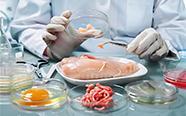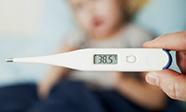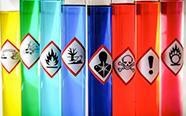
Sorbents - what are they?
Sorbents are substances helping remove various toxins from the body. Sorbents can be of natural or synthetic origin...

Salmonellosis
Salmonellosis is an acute infection affecting digestive system and developing by Salmonella bacteria entering the body. It is accompanied by gastritis, enteritis, colitis, signs of intoxication and dehydration. A ttyphoid-like course of the disease is pretty rare...

Vomiting
Intensively contracting stomach muscles, accompanied by releasing its contents through the mouth, or vomiting, is a reflex protective process. It is necessary to cleanse the body of excess toxic substances. However, there is also pathological vomiting, not associated with getting rid of toxins...

Vomiting in a child
Vomiting is a suddenly releasing stomach contents through the mouth or (much less often) nose. It happens at any age, but more often - in children of 1 year old, when the digestive system still develops. Vomiting in a child, as a rule, is a symptom of the disease. The exception is natural regurgitation in newborns...

Hangover
After excessive drinking alcoholic beverages, a hangover happens. It can be of varying severity, but any hangover is, in fact, a poisoning in which a person should be provided with appropriate medical care. Do not ignore the symptoms indicating serious disorders in the body...

Diarrhea in kids
Diarrhea is one of the most common health problems in any children, and most often parents face it in the first years of a child's life. In medicine, the term "diarrhea" is used to refer to this condition. But this is not an independent pathology with a separate diagnosis, but the key symptom of many diseases. It is developing diarrhea in a child often becomes the most obvious and potentially dangerous manifestation of the disease, encouraging parents to consult a pediatrician or a doctor of another specialty...

Childish food poisoning
Food poisoning is an acute non-contagious disease caused by toxins entering human body with foodstuffs. It features no age restrictions. But children are more prone to food poisoning, which is explained by the functional immaturity of their immune and digestive systems. Therefore, child's body is not yet able to resist acting toxins entering the gastrointestinal tract to the fullest. The response can be quite pronounced, which sometimes represents a certain lofe danger...

Food allergy
Food allergy is a body modified immune response to certain components contained in food. Often the disorder affects children, especially babies. In adults, food allergy is much less common. Even a small amount of allergen can threat human life...

Detoxication
Most of harmful substances entering body undergo chemical transformation in the liver and are excreted in the bile through the intestine. Microbial cells and toxins, surplus food cholesterol and other unnecessary substances (slags) are removed in the same way. With kidney failure, the intestine takes over part of its functions releasing nitrogen metabolism products. The same thing happens with liver failure...

Intoxication
Intoxication is a pathological change in the body when it interacts with a poison of any nature. As a result of this kind of contact, physiological processes fail, organs undergo morphological changes, namely, in the structure of their cells and tissues, which are irreversible in some cases. All this leads to appearing specific symptoms...

Dysentery
Dysentery is a disease known to mankind for a long time. Previously, its prevalence was very high. In the Middle Ages, when dysentery caused epidemics, millions of people of different ages and social status died. At present, this infectious disease is no longer deadly dangerous, since the cause is known and effective therapeutic schemes are developed...

Features of nutrition after poisoning
Food poisoning is a disease caused by having meal containing toxins or pathogens (bacteria, viruses, fungi). The result is destroyed gastrointestinal tract, usually accompanied by vomiting and / or liquid stool. In some cases, other organs, such as kidneys, brain or muscles, also suffer...

Diarrhea - causes, treatment
Diarrhea is a functional disorder of the intestinal tract featuring frequent urge to empty intestine and loose stools. Often, diarrhea is a symptom of food poisoning, as well as of dangerous pathologies, for example, chronic hepatitis, pancreatitis and other infectious and inflammatory diseases...

How to avoid food poisoning?
A pretty high percentage of emergency medical care is accounted for poisoning Incidents. They are acute conditions related to entering toxic substances toxic into the human circulatory system. The most common case is food poisoning, with a toxic factor entering the body through the gastrointestinal tract with food or drink...

Vomiting and fever
Vomiting is one of the most serious symptoms, particularly if it happens in babies at the first years of life or elderly and weakened people. This is explained by the high risk of rapid development of dehydration and severe disturbances in microelement balance resulting in serious and potentially life-threatening diseases. That is why when the repeated vomiting appears, it is recommended to consult a doctor in order to choose proper treatment...

Medicine against intoxication
The toxins are usually considered as chemical poisons entering the human body from the external environment, namely, with food, thus, special medicines need to be taken to neutralize and remove them from the intestine. Filtrum® is an effective preparation for eliminating toxins. It acts against toxin poisoning, based on specially treated herbal components of natural origin...
Thank you!
We will contact You shortly